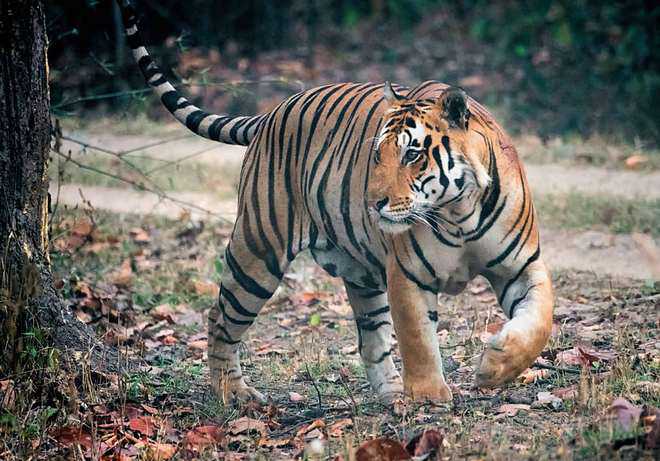
Photo by Latika Nath
Lovkesh Kumar
There are reasons galore as to why she is known as the Tiger Princess. At 36, Latika Nath, is the first woman to have been awarded a doctorate in tiger conservation. She studied under the famous biologist David Macdonald at the Oxford University. An expert in tiger conservation and management in India, she turned author with the children’s book, Takdir, The Tiger Cub, which has been translated into 28 foreign languages. National Geographic channel has featured her passion for wildlife in the documentary The Tiger Princess.
Studying and researching on wildlife is a dream she has nurtured since childhood. Her father introduced her to the importance of environment conservation early on.
“Realising my interest in ecology and wildlife, a friend suggested that I should pursue doctorate in tiger conservation as little scientific research had been done on the subject,” says Latika Nath. Gradually, she widened her horizons and took to several other projects. From developing a strategy for the conservation of the wetland ecosystems in Nepal to studying the Ganga dolphins to researching the effect of animal migration in the Kanchenjunga region, Latika has done it all.
Hers isn’t a regular nine-to-five job, where you reach office, put your head to work and earn a living. From dawn to dusk, she would be in the jungle with dry rations to put her experience on paper later at night. “A few days’ work would extend into weeks. One has to eat judiciously and protect oneself from mosquito and insect bites,” Latika says. She takes all challenges in her stride if she manages to discover something conclusive about an animal’s behaviour.
It is tough to live in the jungle during extreme summer and winter, but impossible in monsoons, the only season Latika has to sit at home.
She has been to several countries that boast of a rich wildlife. There she learnt about how people and authorities conserve their flora and fauna. She rues that it is still not a priority in India. “There has always been a huge gap between the centre and the state policy on wildlife. The interest of animals is unfortunately never important to political parties as they aren’t their votebank.”
The recent deaths of the Gir forest lions is a case in point. “The Gujarat government isn’t ready to send its lions outside the state. The lions need a second habitat in some other state to survive in case of any disease breakout.”
She wants each state to take pride in its wildlife. Punjab is home to a variety of birds and now even dolphins (at Hari-ke-Pattan) and we must promote these facts to generate the interest of the next generation in wildlife. “Only then will our wildlife be rich and the ecological balance be maintained.”
She terms poaching as the real threat to wildlife. “Poaching still exists. Despite strict laws and stringent punishments, animals are killed for their hides, horns, tusks and claws. Until people are taught that wildlife is indispensable for our ecology, this will go on,” adds Latika.



























